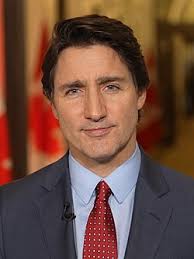
Introduction
As Canada navigates a complex political landscape, Prime Minister Justin Trudeau’s leadership remains a central topic of discussion. Trudeau, who has been in office since 2015, faces significant challenges in 2023 that could determine not only his political future but also the direction of the country as a whole. This article delves into the current challenges Trudeau faces, including public opinion, economic factors, and international relations.
Current Challenges
In the lead-up to the next federal election, which is expected in 2025, Trudeau’s administration has been grappling with various issues that have affected his approval ratings. Recent polls indicate a decline in public support, with many Canadians expressing concerns over rising costs of living, which include housing and grocery prices. The Canadian Mortgage and Housing Corporation has reported that the average home price in major cities has surged, putting home ownership out of reach for many. This have led to increased scrutiny of Trudeau’s handling of housing policies.
In addition to economic woes, Trudeau’s approach to healthcare and climate change has generated polarized opinions. As provinces demand more support from the federal government to counter overwhelming healthcare system pressure, many citizens feel that the federal commitment is inadequate. The ongoing wildfires and extreme weather events also have impacted Canadians’ perception of the government’s climate action policies.
International Relations
On the world stage, Trudeau’s leadership has been tested by evolving global dynamics, particularly the escalating tensions between major world powers. Canada’s continued involvement in NATO and support for Ukraine in its struggle against Russian aggression has raised questions about how the Trudeau government balances defense commitments with domestic needs. Additionally, Trudeau’s immigration policies have faced criticism from both sides of the political spectrum, complicating the national dialogue on how best to approach the humanitarian crisis caused by conflicts and climate change.
Conclusion
As Canada heads towards the next federal election, Justin Trudeau’s ability to address these challenges will be pivotal. If his government can effectively tackle the economic concerns and improve public sentiment regarding healthcare and climate action, Trudeau may solidify his position. However, should current trends continue, he may face a tough battle to retain leadership. Analysts predict that the 2025 election is shaping up to be one of the most crucial in recent Canadian history, and Trudeau’s performance will be under close scrutiny. How he navigates these turbulent waters will not only affect his political legacy but could also shape Canada’s direction for years to come.



